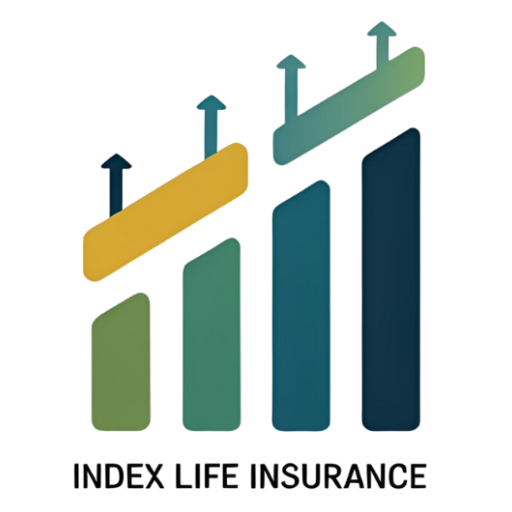When it comes to securing life, health, or property insurance, many people turn to online platforms for instant quotes. But behind every quality policy is often a knowledgeable and reliable insurance agency—a firm or team of licensed professionals who help guide clients through the insurance landscape. Whether you’re purchasing your first term policy or building a sophisticated Index Universal Life (IUL) strategy, the right insurance agency can make all the difference in both immediate support and long-term success.
This article explores what an insurance agency does, how it differs from a direct insurer, the benefits of working with one, and what to look for—especially if you’re managing more complex financial tools like IUL policies.
What Is an Insurance Agency?
An insurance agency is a business entity authorized to sell, service, and manage insurance policies on behalf of one or multiple insurance carriers. Agencies employ licensed agents who act as intermediaries between insurers and customers. They offer:
- Policy recommendations based on client needs
- Quotes and illustrations from one or several insurers
- Claims support and policy servicing after purchase
- Ongoing guidance for renewals, rider additions, and policy upgrades
Agency vs. Carrier vs. Broker: Know the Difference
Understanding how an agency fits into the insurance ecosystem is essential:
- Insurance Carrier: The actual company providing the policy and financial backing (e.g., Prudential, Allianz, AIG)
- Insurance Agency: A firm representing one or more carriers, selling and servicing policies
- Insurance Broker: An independent professional who shops across multiple carriers to find the best fit—often working for an agency
While the distinctions may seem small, they impact the options, flexibility, and support you’ll receive.
Types of Insurance Agencies
Not all agencies operate the same way. Understanding their business models can help you choose the right one:
- Captive Agencies: Represent a single insurer. They offer only that company’s products (e.g., State Farm, Allstate).
- Independent Agencies: Represent multiple insurers, offering broader options for pricing, underwriting, and riders.
- Specialized Agencies: Focus on a niche (e.g., IUL, Medicare, business insurance) and provide expert-level support.
Why Work With an Insurance Agency?
Many people assume they can go directly to a carrier and skip the middleman. While that’s possible, working with an agency offers clear advantages:
- ✅ Access to multiple quotes from competing insurers
- ✅ Expert guidance on complex products like IUL or disability insurance
- ✅ Help with application paperwork and health underwriting
- ✅ Claims advocacy and support when you need it most
- ✅ Ongoing policy reviews and beneficiary updates
In many cases, there’s no extra cost to the client—the carrier pays the agency’s commission. So you get professional help at no direct expense.
The Role of an Agency in Index Universal Life (IUL) Planning
Index Universal Life insurance is a dynamic product requiring active management. A general agent may not have the depth of experience to customize it to your needs, but a specialized agency can offer:
- Custom policy illustrations: Simulate growth under various market conditions
- Funding strategies: Guide how to overfund for maximum tax-advantaged cash value
- Rider integration: Help you choose chronic illness, waiver of premium, or overloan protection riders
- Ongoing performance reviews: Adjust premium schedules and monitor cap rates annually
Without an agency that understands IUL mechanics, policyholders risk underperformance or lapse due to poor guidance.
What to Look for in a Quality Insurance Agency
Choosing the right agency is as important as selecting the right policy. Here’s what to consider:
- Licensing: Verify they’re licensed in your state and in good standing
- Carrier Access: Do they represent multiple A-rated insurance companies?
- Product Specialization: Do they regularly handle IUL or the policy type you’re interested in?
- Client Reviews: Look at independent reviews for customer satisfaction and claims support
- Fiduciary Standard: Advisors who put your needs first (especially if offering financial planning)
Questions to Ask Before Choosing an Agency
Interview potential agencies just like you would a financial advisor. Ask:
- How many carriers do you represent?
- What is your experience with IUL or permanent life insurance?
- Do you offer annual policy reviews?
- What support do you provide during the claims process?
- Are there any fees I should be aware of?
Local vs. National Insurance Agencies
Should you go with a local independent agency or a national one with digital tools? It depends on your preferences:
- Local Agencies: Offer in-person meetings, community familiarity, and hands-on service
- National Platforms: Offer 24/7 portals, fast online quoting, and broad policy access
- Hybrid Agencies: Combine local expertise with tech-enabled convenience—often the best of both worlds
Your Insurance Agency Is a Long-Term Partner
Insurance isn’t a one-time purchase—it’s a living strategy that requires updates, servicing, and guidance as your life evolves. Whether you’re funding an IUL for retirement income, buying your first term policy, or managing family legacy planning, the right insurance agency serves as your advocate, educator, and strategist.
Don’t choose an agency just because it’s nearby or offers the cheapest rate. Choose one that’s knowledgeable, transparent, and aligned with your long-term goals. In insurance, relationships matter as much as numbers—and your agency should be one you trust for the road ahead.

